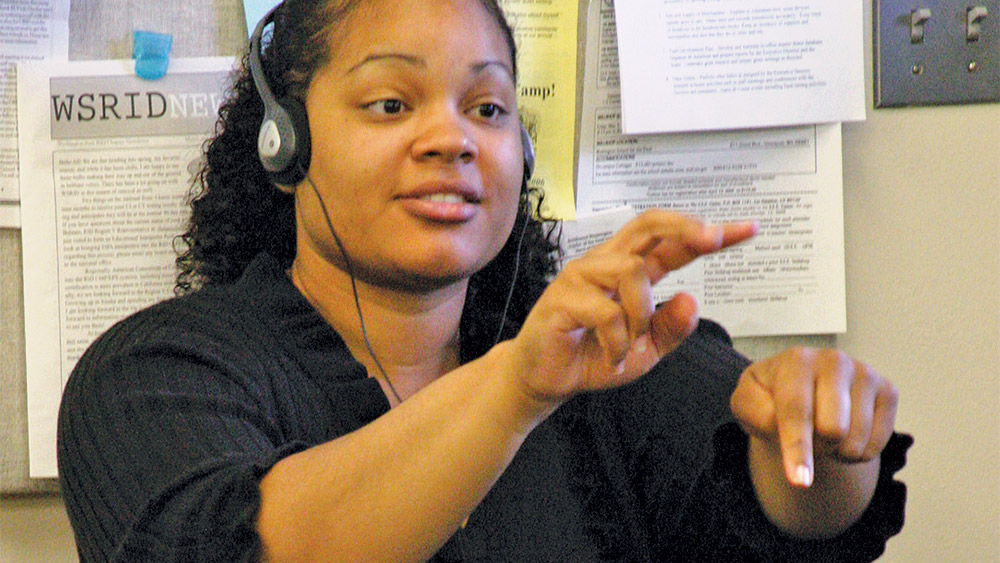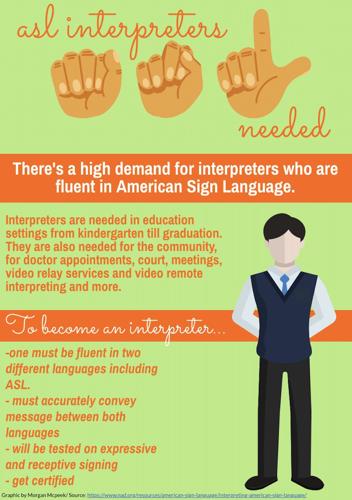Here’s A Quick Way To Solve A Info About How To Be An Asl Interpreter

I believe the most important quality for any asl interpreter is passion for your work.
How to be an asl interpreter. Communication between yourself and your audience is the number. Formal education in either a college or university setting is required, with most asl interpreters having an associate degree in american sign language, or a bachelor's/master's degree in. Interpreters possess the professional skills and knowledge required for the specific interpreting situation.
You might consider joining a sign language group, tutoring asl students or volunteering your interpreting services at community events. If you are looking for an asl interpreter for an event, you can find them on: Interpreters adhere to standards of confidential communication.
There is not a typical educational requirement for an asl interpreter. How to become an asl interpreter 1. To earn interpreter certification in your target language, follow these steps:
How to become an interpreter. A bachelor’s degree is required in order to qualify to take the national interpreter certification (nic) exam. Observe and intern under certified sign language interpreters in a variety of settings.
Begin with the basics language aptitude. There are plenty of opportunities in this field for those who are motivated and. It’s likely that, given enough time and creative learning methods, almost anyone can learn a second.
Many colleges and universities offer bachelor's degrees in interpretation or a degree in the language. Employers may require a bachelor's degree and some technical positions may require a master's degree. Just knowing how to sign does not qualify someone to be a professional asl interpreter.
Students may be able to find either paid or unpaid internships that can allow them to start building a resume. If you have not already mastered asl, then the first step is to plan how you can learn and master. An asl translator becomes proficient over time.
Find a mentor, or several mentors, that can provide advice, suggestions, feedback,. Asking questions is always a good idea! Lean on the preferences of the deaf individual and then the expertise of the asl interpreter.
Earn a high school diploma or equivalent. You can also work with community organizations,. This certification ensures minimum competencies are present and.







/interpreter-signing-during-business-meeting--942650188-5be1bb51c9e77c0051de1fea.jpg)










